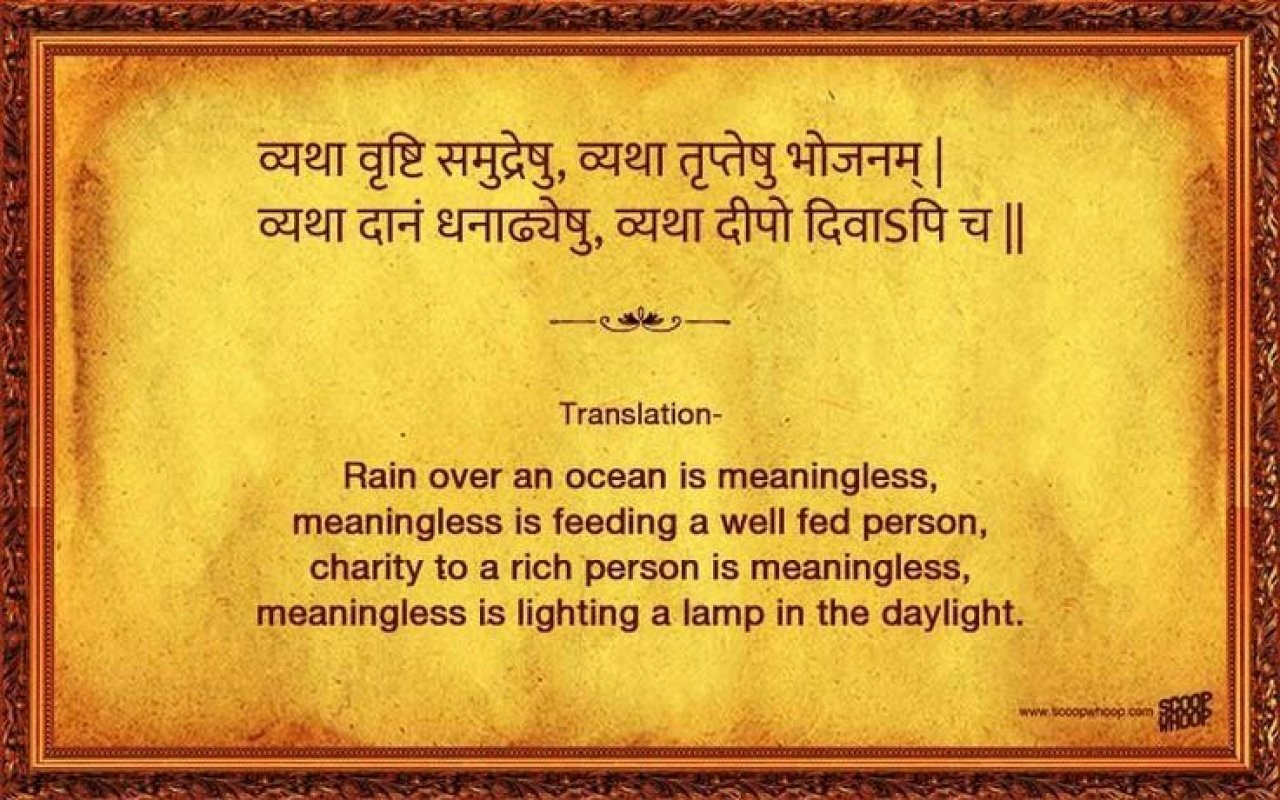Sanskrit vs. Modern Day Quotes: Which Resonates Deeper?

“Live, Laugh, Love” – a phrase plastered across walls, social media feeds, and countless Instagram captions. It’s simple, catchy, and undeniably popular. But here’s the real question: Does it truly speak to your soul? Or is there something deeper, something more profound, that modern-day mantras fail to capture?
Let’s contrast that with a shloka from the Mundaka Upanishad: “Truth alone triumphs, not falsehood.” These words, chanted and revered for millennia, encapsulate the core of human experience. They challenge us to dig deeper, to transcend the superficial, and to align ourselves with a universal truth that goes beyond fleeting emotions. When you compare the lightness of “Live, Laugh, Love” with the gravity of this Sanskrit wisdom, which one do you feel resonates more?
But here’s where things get interesting. Some may argue that we’ve evolved past the need for ancient wisdom, that today’s bite-sized quotes and modern affirmations are more relevant to our fast-paced lives. After all, why complicate things with archaic language when a simple phrase like “Live, Laugh, Love” gets the message across? But is that really the case? Or are these modern-day mantras just skimming the surface, while the ancient Sanskrit shlokas offer a well of wisdom that modern life desperately needs?
Consider this: The resurgence of Sanskrit in branding, from yoga studios to fashion labels like VeechiVed, isn’t just a nostalgic nod to the past. It’s happening because these ancient words resonate with something deep within us, something that modern phrases struggle to reach. The difference between a catchy quote and a Sanskrit shloka is like the difference between a ripple and a wave. One may catch your attention for a moment, but the other has the power to move you, to shape your inner world in ways you didn’t realize you needed.
And this isn’t just about spirituality—it’s about substance. Ancient Sanskrit shlokas are rooted in timeless truths, crafted not just to inspire, but to transform. The phrase “Live, Laugh, Love” might make you smile, but it doesn’t challenge you. It doesn’t call you to reflect on your deeper purpose or the eternal truths of existence. Sanskrit, on the other hand, asks you to engage, to question, to grow. It’s not just a feel-good slogan; it’s a roadmap to a higher way of being.
Now, let’s address the controversy. Is ancient wisdom truly better than modern-day mantras? Some might say that modern quotes have their place—they’re accessible, relatable, and quick to digest. But the very rise of Sanskrit in contemporary culture suggests something else. People are turning back to these ancient teachings not because they’re old, but because they’re enduring. They resonate on a level that transcends trends and time. They speak to the universal human experience in a way that “Live, Laugh, Love” never can.
So, what’s really happening here? Are we just nostalgic for the past, or are we realizing that modern life has stripped away too much of the depth we need to thrive? As Sanskrit re-emerges in popular culture, it’s clear that many are seeking something more—a deeper connection, a sense of meaning that goes beyond the surface level of modern-day mantras.
Here’s where you need to ask yourself: Are you content with phrases that offer a quick hit of positivity, or are you ready to embrace the depth and wisdom that only Sanskrit can provide? Will you continue to decorate your life with fleeting quotes, or will you choose to wear and live by words that have guided humanity for thousands of years?
The choice is yours. Which language speaks to your soul?





